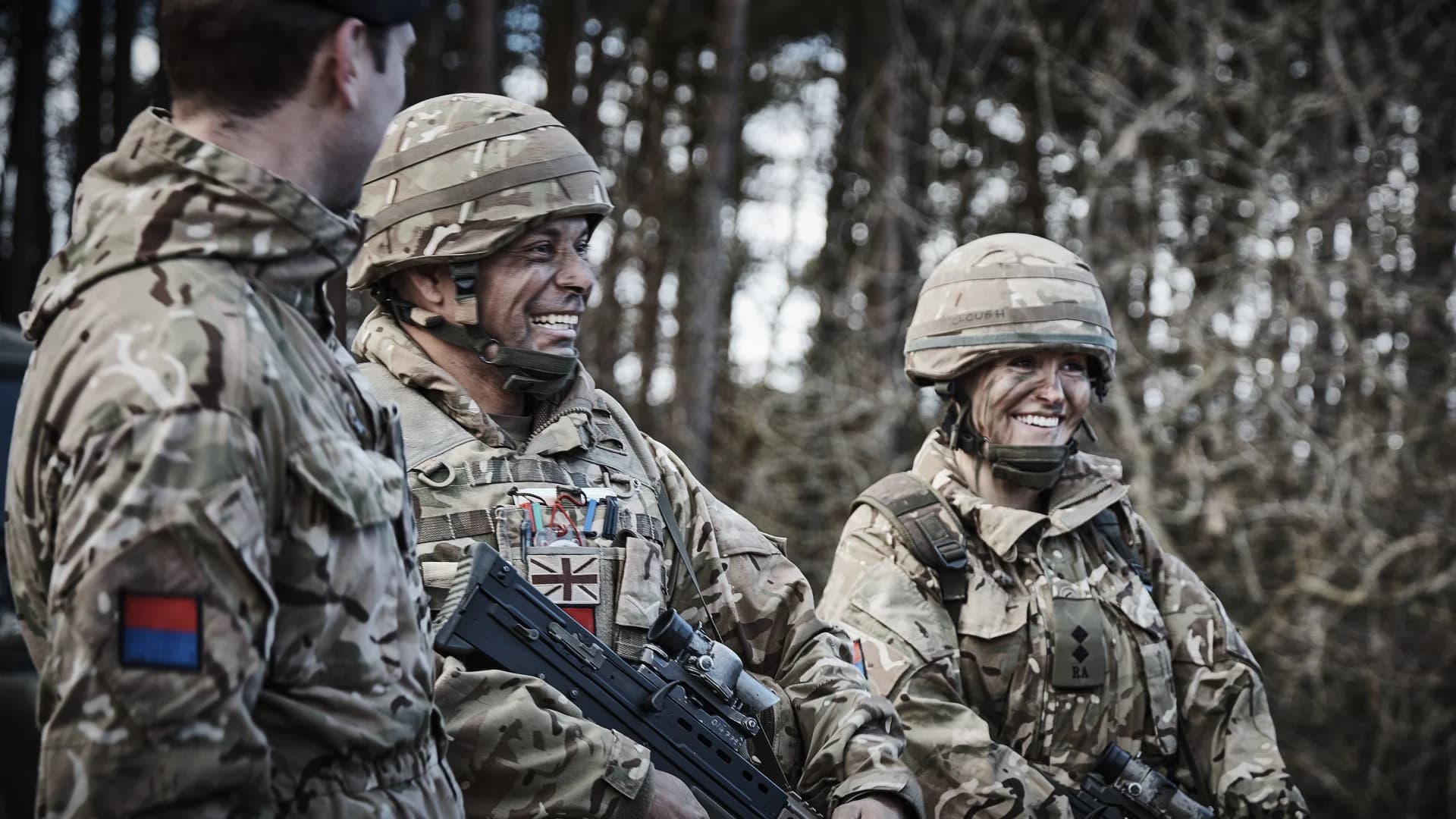
Can you compare the pros/cons of being a regular vs reserve doctor?

Additional information
I'm thinking of applying post-ACCS anaesthetics (due to citizenship requirements) instead of post FY2. How would joining at a later career stage impact the cost/benefit of joining as a reserve compared to a full-time medical officer?
Sam J. asked a question to Medical Roles
Category: Role Comparison
Date asked: Monday, September 7, 2020
Last reviewed: Tuesday, May 18, 2021

Tori C.
Regimental Medical Officer
Sam! You're asking me all the hard questions today!
I probably can't go in to the detail you're looking for here (simply because I don't know enough about the reserves side of things), but I'll do the best I can.
Firstly, if you are thinking of joining during training rather than post FY2 I would double check what your options are with our recruitment team. Simply because the number of training spots each year can vary significantly, and our training tends to be oversubscribed. Their contact details can be found at the bottom of their website
https://www.army.mod.uk/who-we-are/corps-regiments-and-units/army-medical-services/
I've collated a few responses from some of my regular colleagues who used to be reservists so have an idea what both sides are like (I fear I would be too heavily biased!)
Benefits of being a regular
- GDMO time
- Priority for courses (eg BATLS)
- More likely to deploy (while deployments are available to reservists, the general feeling seemed to be that they were often too short notice to get time off work, or too far in the future to be able to make a decision as you wouldn't know which hospital/rotation you would be working in. There are also limited opportunities for doctors who have not yet CCT'd)
- Better pay + all the financial benefits of being in the military (housing/accom etc..)
- Better army experience - officership, duties of a medical officer, general understanding of how the army functions.
Benefits of being a reservist
- More choice in specialty training, arguably also less competitive (depending on where you want to work)
- More flexible generally, can opt in/out of exercises
- Can top up NHS pay with MTDs, bounty, claiming courses, education fund etc..
I realise not all of the above will be relevant for you if you're not able to join until you've started specialty training, but I hope the general jist is helpful. If anyone else gets back to me with anything that may be useful for you, I'll post an update.
Monday, September 7, 2020
Sam J.
Thank you for your responses and gathering your colleagues opinions too!
How about yourself - what led you to join the regulars instead of getting experience of how the army is like as a reservist? (It's a fair commitment going in without prior experience of the army/without a bursary; would love to hear what swung it for you.)
Glad to do the GDMO years at whatever stage of joining - sounds like a worthwhile 3 years from what you've shared.
Monday, September 7, 2020

Tori C.
Regimental Medical Officer
I was towards the end of FY1 and knew I needed a change of scenery after FY2, but still wanted to do something quite structured that would be good for my career. I could have done a trust grade job and joined the reserves, but it didn't even really cross my mind at the time (I think mostly because I didn't want to do another NHS job at that point). I thought I would just go along with the application process for the regulars, and if I got in I would decide what I wanted. The application process ended up being really enjoyable and I met some great friends along the way (who I ended up commissioning with and working with afterwards), so when I got in, it seemed the obvious choice. I knew there was the option to leave after 3 years, and 3 years didn't seem like a particularly long time, so I figured there was no harm in giving it a go. Fortunately I loved it and stayed.
Tuesday, September 8, 2020

Tori C.
Regimental Medical Officer
Hi Sam,
A reservist colleague who is an ACCS EM trainee got back to me. These were her points.
'Regulars seem to get more for their commitment in terms of deployments etc..
As a regular you are employed by the MOD and so the application process/paperwork/training requirements may be different to the colleagues you work with (which can be both good and bad).
As a reservist employed by the NHS you can apply to the locations you want to be in (i.e you can choose where you want to live), you also have the flexibility to drop down to LTFT if you want, or take time out of training.
You can either be a regionally recruited or nationally recruited reservist which impacts on how many days of training you need to do per year to maintain competency/get your annual bonus - I currently do 28 days of training per year (incl 2 week block which is generally a 16 day annual camp + training weekend/the odd tuesday evening). Each trust has a reservist policy which generally gives you 1-2 weeks paid military leave plus a week of unpaid military leave per year in addition to your annual and study leave, which really helps.
Some of the reservist training can be a bit of a faff and feel like a 'tick box' exercise as everyone needs to do the same stuff to maintain competency. But there are loads of opportunities to do fun stuff, you just need to do the hoop jumping first.
Balancing a busy rota with weekends etc takes a bit of organisation and can be a pain (as both rotas and military plans change at short notice) but it's worth it in the end.
I've managed to get on quite a few clinical courses (which then count as army training days and I get paid for it) and this year would have been in Holland/Germany for 2 weeks doing med cover for a big event and some adventure training, and snowdonia doing mountain leader training if it hadn't been for COVID.
Generally speaking there are more opportunities to run around in green kit as a reservist than as a regular if that's what floats your boat.
There's lots of chat about 'one army' etc... ultimately there is a difference between regs and reserves, but you can integrate yourself if you put a bit of time in. I thought a lot about joining the regulars but ultimately decided against it in the end (mostly due to flexibility and the fact I have other interests that are difficult to balance with regular service).
Having put in a bit of effort to get to know the emergency medicine regular trainees and consultants it has opened up a whole load of new opportunities (courses etc).
Ultimately to get the most out of reservist opportunities (be it going away/adventure training or clinical stuff) you end up having to put quite a lot of time in to reap rewards. But worth it once you cross the threshold!
Work life balance can be tricky as an ACCS trainee, as both a regular or reservist (or neither!) for different reasons. It can feel like you're being pulled in a million directions - essentially as a reservist it's important to remember you're on a zero hours contract and can therefore leave whenever you want/press pause and focus on life outside of work and revisit later. Ultimately you are in control, which for me is the biggest plus.'
I hope that helps you with your decision!
Wednesday, September 9, 2020
Sam J.
Legend!! Thanks for taking the time to reply.
That's really helpful (for myself and I'm sure anyone else reading this thread) - seeing both sides of it from you and your colleague. Definitely food for thought. Do pass on my thanks to her as well.
Wednesday, September 9, 2020
Arran A.
As a follow-up to this question. Is the process of switching from a reservist to regular a relatively painless process?
I'm a trust grade FY1 working to complete my CREST form and have just begun the application process to become a reservist. However, after FY2 competencies are signed off, I am set on becoming a regular.
Struggling to decide if it's easier go just cancel my application to become a reservist and reapply directly as a regular.
Tuesday, May 18, 2021

Tori C.
Regimental Medical Officer
Hi Arran,
If you want to start after FY2 then I would recommend starting your application during FY1 usually. I've spoken to a few colleagues who were reservists first and then joined the regulars to start after FY2, and they both said they would recommend just going straight for the regulars and then it's easier to transfer to the reserves if you change your mind than doing it the other way round.
I hope that helps!
Tuesday, May 18, 2021
This discussion is closed, so no new comments can be added.